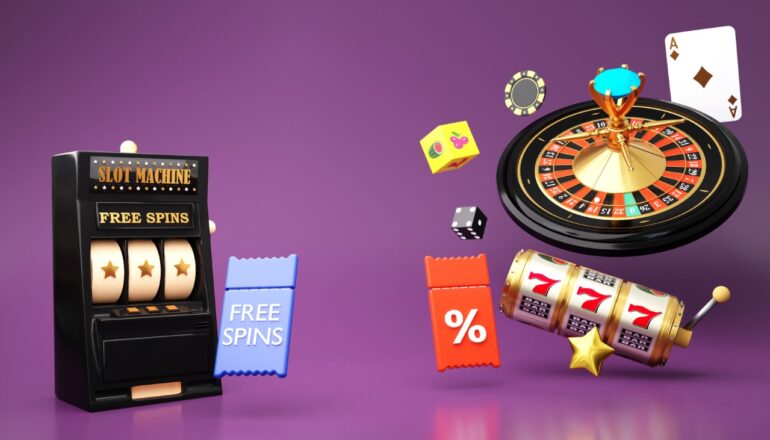The blinking lights and exciting sounds of a casino have long seduced players to test their luck at slots. As online casinos have grown in popularity, slots have evolved from simple games of chance to meticulously designed experiences that hook and hold players for longer periods of time.
Adapting to the Digital Age
As slots transitioned online, the opportunity arose for a major shift. No longer confined to physical machines with limited flexibility, online slots could iteratively test and optimize to maximize player engagement. And with data analytics, they could precisely measure, tailor and personalize gameplay on such sites as Spinmama Casino.
| Year | Key Design Changes | Impact on Players |
| 2000 | Basic ports of classic slots | Familiarity for existing players |
| 2005 | Interactive features like mini-games | Increased entertainment value |
| 2010 | Cinematic graphics and themes | Immersive, exciting visuals |
| 2015 | Personalized promotions & rewards | Tailored incentives to play more |
| 2020 | Dynamic difficulty, AI-driven features | Ensures prolonged gameplay |
Where classic slots had static gameplay, online slots evolved to provide a compelling, customized and adaptive experience designed to hook players.
Hacking Dopamine Loops
Slots have always played upon variable ratio reward schedules. The unpredictability of when rewards are delivered provokes potent dopamine releases that reinforce continued play.
As psychologists better understood what drives compulsive behavior, slots incorporated other dopamine loop hacks:
- Losses disguised as wins – Slightly less than the original bet is returned, triggering a dopamine surge.
- Near misses – Landing just short of a jackpot keeps players emotionally invested and believing a win is imminent.
- Escalating gameplay – Leveling up and unlocking new features maintains curiosity and interest.
- Mini games – Breaking up slot spins with interactive play lengthens sessions.
- Quests & challenges – Setting achievable goals with variability on when they pay off hooks our reward system.
By maximizing dopamine triggers, online slots successfully gamify the experience to keep players playing longer.
Illusion of Control
Physical slot machines highlight the randomness – players pull a lever and see where the symbols land. Online slots introduce elements of apparent skill and choice to foster an illusion of control. Features like being able to stop the reels, pick bonus items or play side games make players feel like they influence outcomes.
In reality, the outcomes remain statistically random and autonomous design ensures the house always wins. But the illusion hooks our motivation to try to optimize outcomes through personal agency – even when none exists. We compulsively play to get better at the game and improve results.
This manifests in chasing losses too. The cognitive twist of near misses convinces players that with better selections, their luck can turn. They continue playing to master a game carefully calibrated to maximize time on the device.
Data-Driven Personalization
Once a player is hooked, modern slots leverage data analytics to incentivize continued play. Tracking gameplay behavior enables layers of personalization:
- Targeted promotions – Free spins and bonuses are offered when engagement drops.
- Variable reward scheduling – Individual play history informs reward timing to prolong play.
- Dynamic difficulty – Algorithms modulate volatility based on individual pain and pleasure thresholds.
- AI recommendations – Suggesting games, features and bets based on preferences.
Much like social media feeds, online slots curate an individualized experience that adapts in real time to user behavior. The house always wins, but players feel like they are getting more relevant entertainment catered to their taste as they play.
This combination of technological capabilities and psychological vulnerabilities has supercharged the addictiveness of online slots. Layers of gamification insights reprogram an activity historically centered on random chance into one deliberately designed to compel extended engagement. And by making play more entertaining through personalization, slots successfully groom loyalty, despite their consistent mathematical edge against players in the long run.
In a Nutshell
Ultimately, as players, we face a choice of how much control we retain over our gameplay decisions versus unwittingly outsourcing agency to persuasive systems optimized to extract more of our time, attention and money. It is not an even match. But awareness of how online slots seduce us can help players establish guardrails so the risks we take err on the side of entertainment rather than imprudence.






